- Published on
Renting in the Netherlands: A Comprehensive Guide for Expats
Finding a place to rent in the Netherlands can be daunting, especially for expats new to the country.
In this guide, I’ll walk you through the process, sharing valuable insights to streamline your apartment search. These tips will prove invaluable whether you're a first-timer or have lived in The Netherlands before
In case you prefer visual content, I have made a video about renting in the Netherlands:
Temporary Living Options
Upon your arrival in the Netherlands, two essential questions arise:
- Where can you stay while searching for a permanent place?
- Is it feasible to secure accommodation online before arrival?
Temporary living options include hotels, Airbnb, or employer-provided housing if available. If you’re not lucky enough to have an employer that pays for the accommodation, I’d recommend focusing on hotels and Airbnb. They may be pricier but save you time and hassle, allowing you to focus on finding a permanent residence.
You should always look for accommodation for at least a month because many places offer quite nice discounts for monthly stays. The Netherlands is a bit weird, and the hotels here often cost less than Airbnb because of many regulations regarding short-term rent and Airbnb specifically. So I would recommend checking the hotels first.
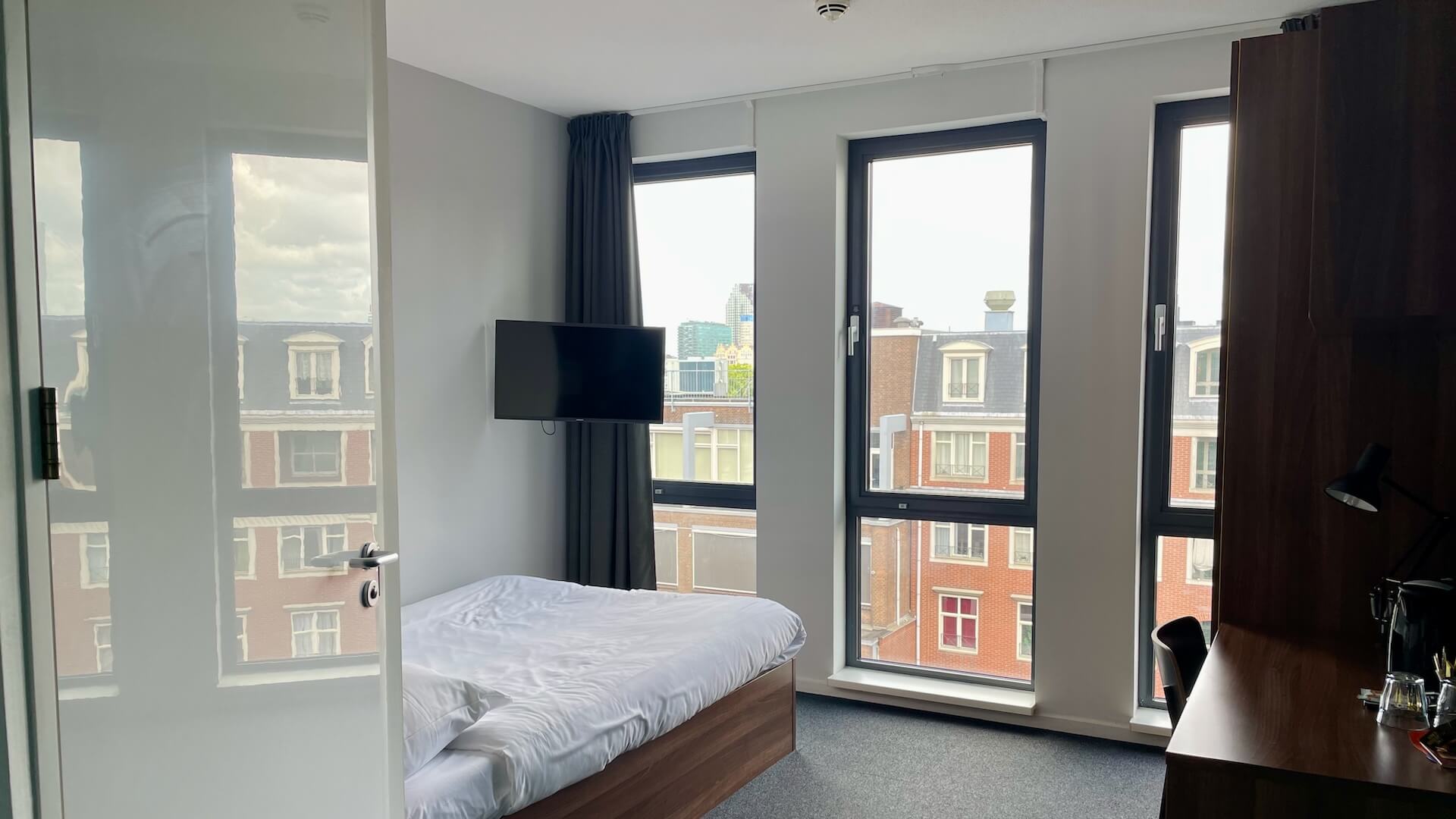
Here are a few examples of hotels and apartments that offer monthly deals for rent in big cities.
The Hague
- The Social Hub—When we arrived in The Hague, we stayed in this hotel for a month. It was very good value for money and of good quality.
- 348 Suites Short Stay - Studio apartments with a monthly discount
The Rotterdam
- Le Petit Marin Boutique Hotel - Budget monthly-stay friendly hotel
- The Hendrick - Monthly-rent studio with kitchen
Amsterdam
- Greenstay - Apartment complex with monthly short-term rentals
- Bob W Oosterpark - More expensive hotel with monthly-friendly stays
Utrecht
- Badhuis Hotel - Monthly-stay friendly hotel with bathtub
- UtrechtCityApartments - Studio apartments for short stay monthly rent with kitchen
Finding a place online will be challenging because most rental properties in big cities in The Netherlands have tens of applicants. They always pick the best tenant for the case; of course, the person not even in a country will be considered the last.
If you choose this route, you’ll be very limited to the lower-quality places. Be ready to apply to many places and get many declines. When I say many, I truly mean hundreds of applications. If you don’t care which city to move to, you have a slightly higher chance, but I would still recommend searching for a place offline if possible.
Finding a place to rent in the Netherlands
Satellite cities
Choosing the right city is crucial. Of course, many people probably already know where they’re moving to because of work or university. But if you struggle to find a place inside your goal town, consider satellite cities. For example, cities like Almere, Hoofddorp, or Zaandam would be very nice if you worked in Amsterdam.
The Dutch train system offers a viable alternative to living in the city centers.
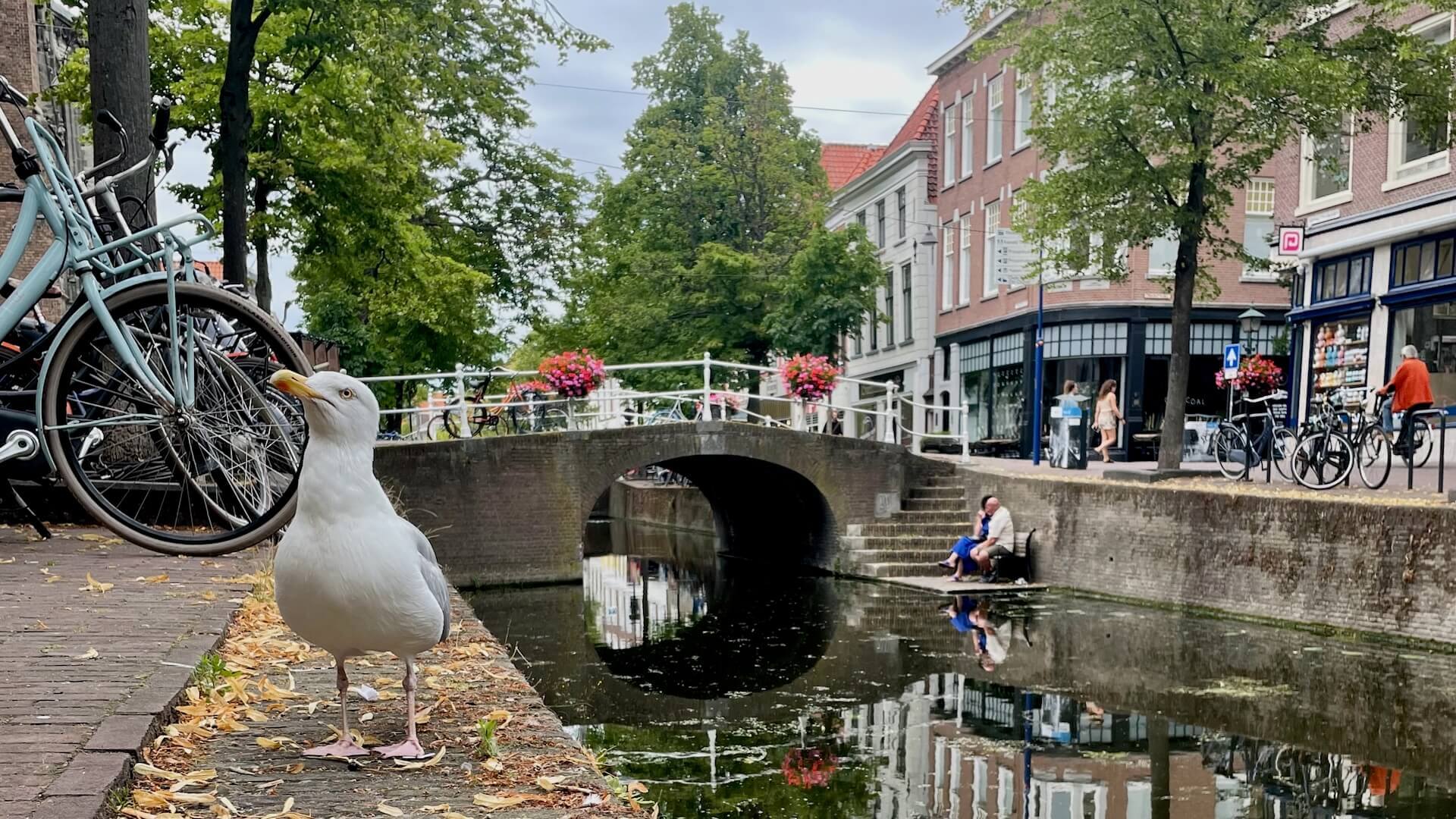
Researching Neighbourhoods
While it's not necessary to restrict yourself to one specific neighborhood, having a list of preferred areas or those to avoid is beneficial.
You can take advantage of some resources online for gathering information about areas:
- HoodMaps is a side project of Nomadlist for researching areas for digital nomads. You can pick any city and see the neighborhoods. It's fully crowdsourced so that you can find some unfavorable things written about the areas. But it can give you an approximate idea of what a specific area is about.
- Mapitout is a great resource, especially if you have to travel to work. You can select any destination, type of transport, and time you’re willing to spend on the commute. The map then calculates all the areas within the desired distance of the place on the desired transport—great idea and service.
- huizenzoeker.nl—This resource is mostly created for people buying houses, but you can find a lot of great information there. It shows the type of areas according to city planning, like commercial, living, or agricultural areas. Seeing the closest schools or kindergartens might be useful if you have kids. Also, you can find the closest supermarkets, public transportation stations, and even statistics about home burglaries. The website is fully in Dutch, but you can figure it out using online translation.
Despite these great services, I strongly recommend walking to the areas yourself and getting a feel for them. It’s almost impossible to really understand an area until you've walked there. It’s another advantage of searching for an apartment while physically present in the Netherlands.
When we arrived, we spent weekends and evenings just walking around different areas of The Hague and imagining life there. We did the same when we were picking the city and area to purchase a house later.
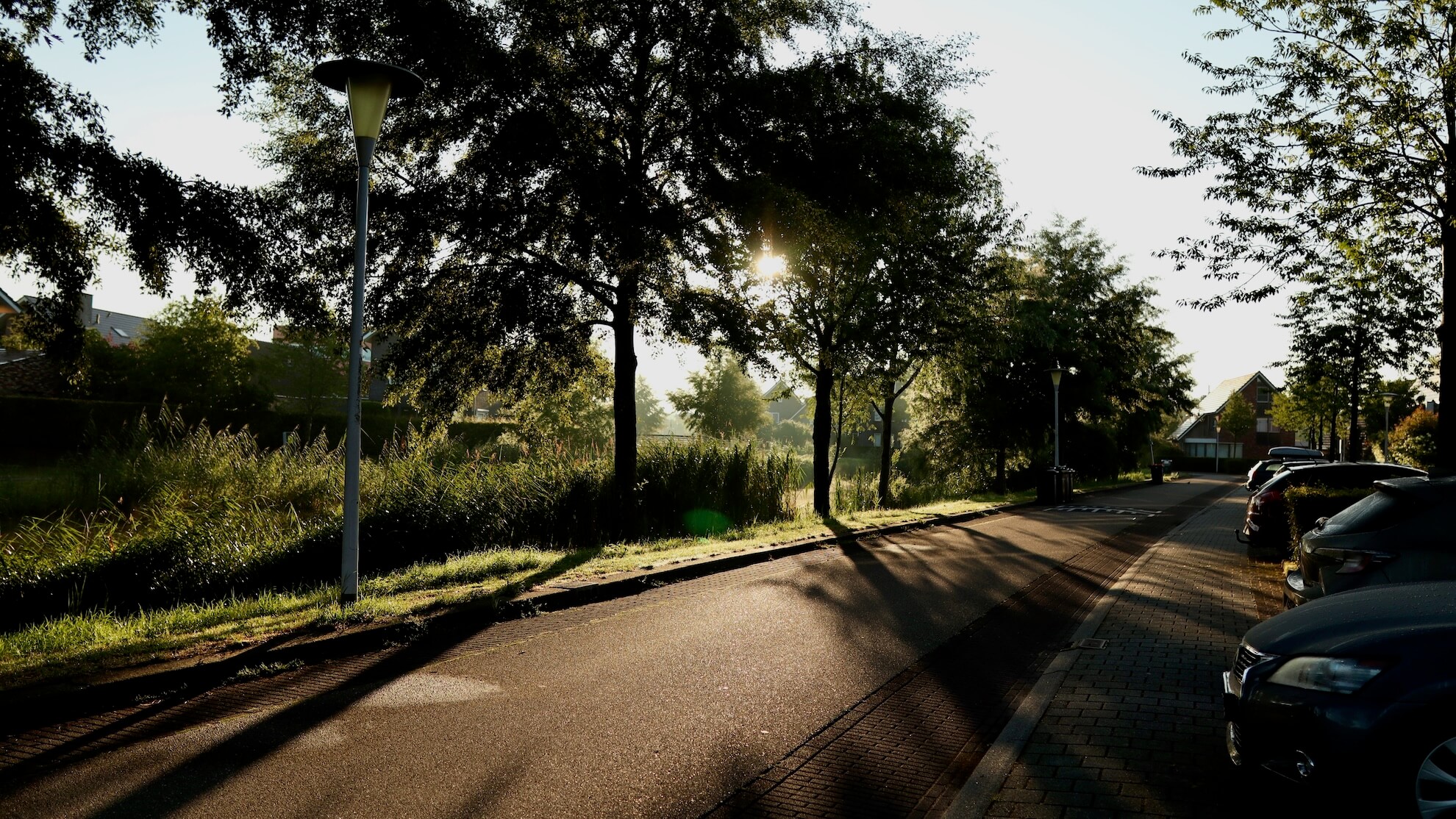
It’s worth noting that the Netherlands is a very well-built and safe country. So, even if you don’t thoroughly research the area, you’ll probably be in a good place. In a few years of living here, I barely saw “bad neighborhoods.” They certainly exist, but they are very rare.
Creating Your Apartment Wishlist
Another list you will need to create is your house Wishlist for a future rental. What do you want from the apartment?
Furniture in the apartment
Do you want the apartment to be fully furnished or not?
The main types of apartments in the Netherlands are furnished (gemeubileerd), semi-furnished (gestoffeerd), and unfurnished (kaal).
Remember that unfurnished can mean completely empty boxes, sometimes lacking even basic flooring, which you will need to install. Yeah, yeah, you read it right—no floor!
Semi-furnished, which is what most expats who stay for at least several years want. You will probably have a fully functional bathroom/kitchen with appliances. But the bedroom and living room will be empty. But you usually will have a floor 😎
Furnished apartments are a bit rarer but not impossible to find. They are a great choice if you are coming to The Netherlands for a short period or don’t want to spend money on furniture. However, they will be more expensive.
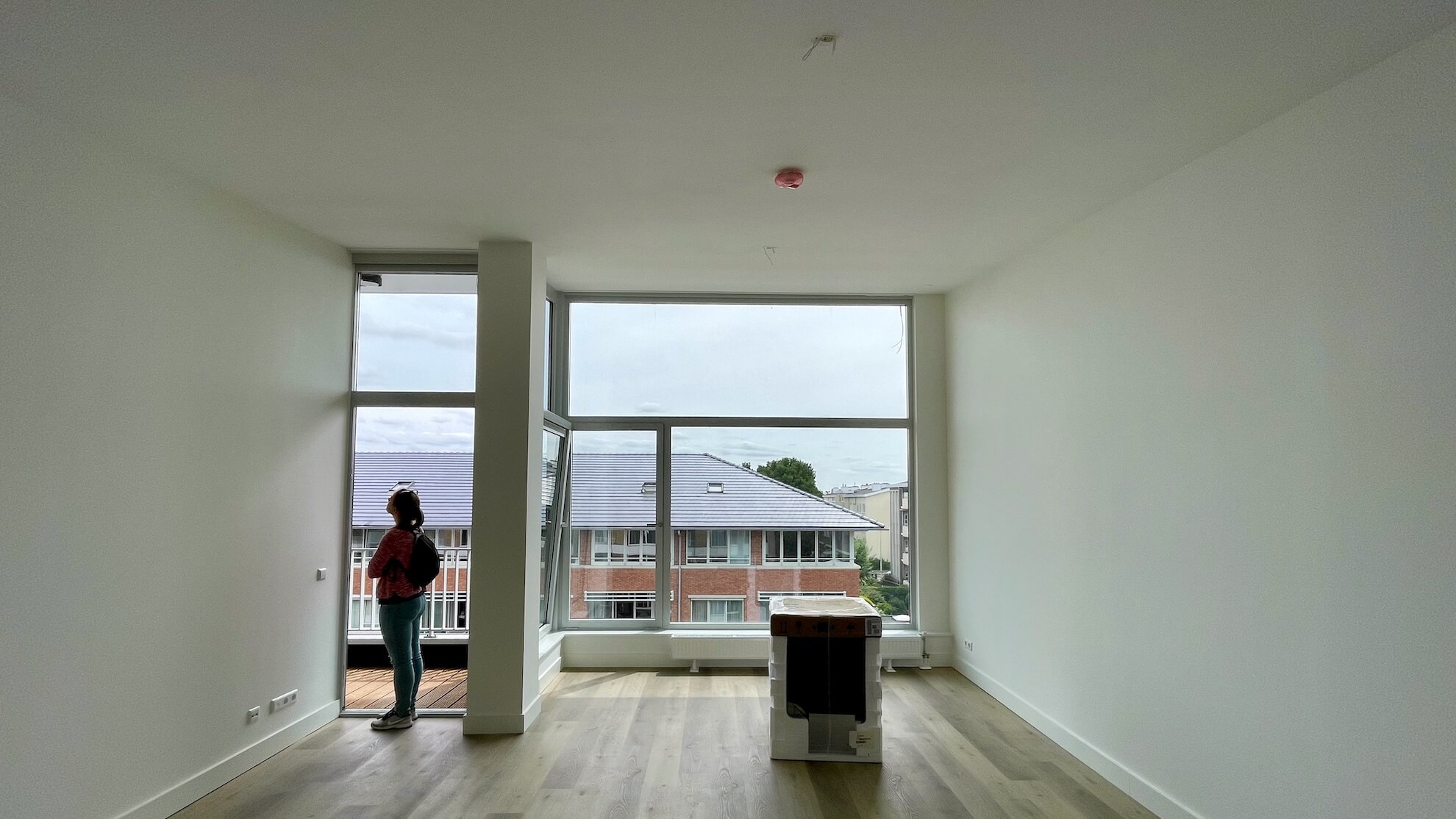
Other features of the rental
Other things to consider are the size of the place, the number of bedrooms you need, and the amenities you want inside the building. Dutch people love spending time outside, so there is a big chance that you will find terraces, balconies, roof decks, common outside areas, etc.
Maybe you even want to rent a proper house instead of an apartment. Keep in mind that houses are much more expensive to rent. You can’t rent a house unless you're a house-owner and have fully paid off your mortgage or have a special rental type of mortgage, so houses are a rare find.
Companies often own apartment buildings, and they rent out the whole building. It might be a bit easier to deal with a big company instead of a person, especially if you’re new to the country.
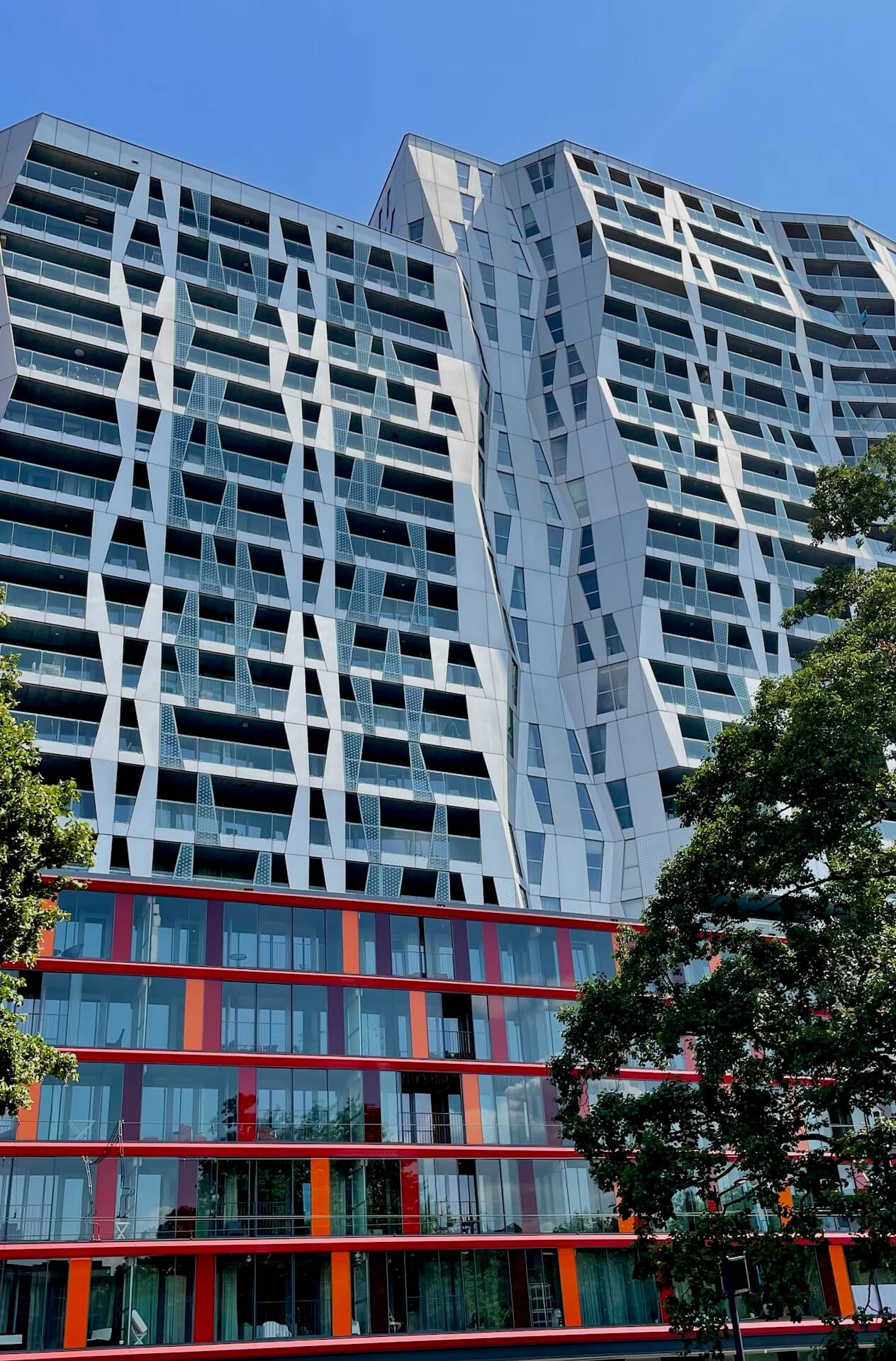
Of course, you will also want to write down your price range. More on that below.
Now, you need to start applying for viewings.
Rental Websites
Funda.nl is a go-to platform for property listings in the Netherlands, both buying and renting.
More recourses exist, such as pararius.com or local websites like perfectrent.nl in Rotterdam.
Helper websites do some of the job for you, like rentslam.com, which might be good if you’re busy. But I would focus on Funda first.
Funda UI is very straightforward and supports the English language, so you won’t have a hard time understanding it. Sometimes, the apartment description is in Dutch, but you can use an online translator to understand it.
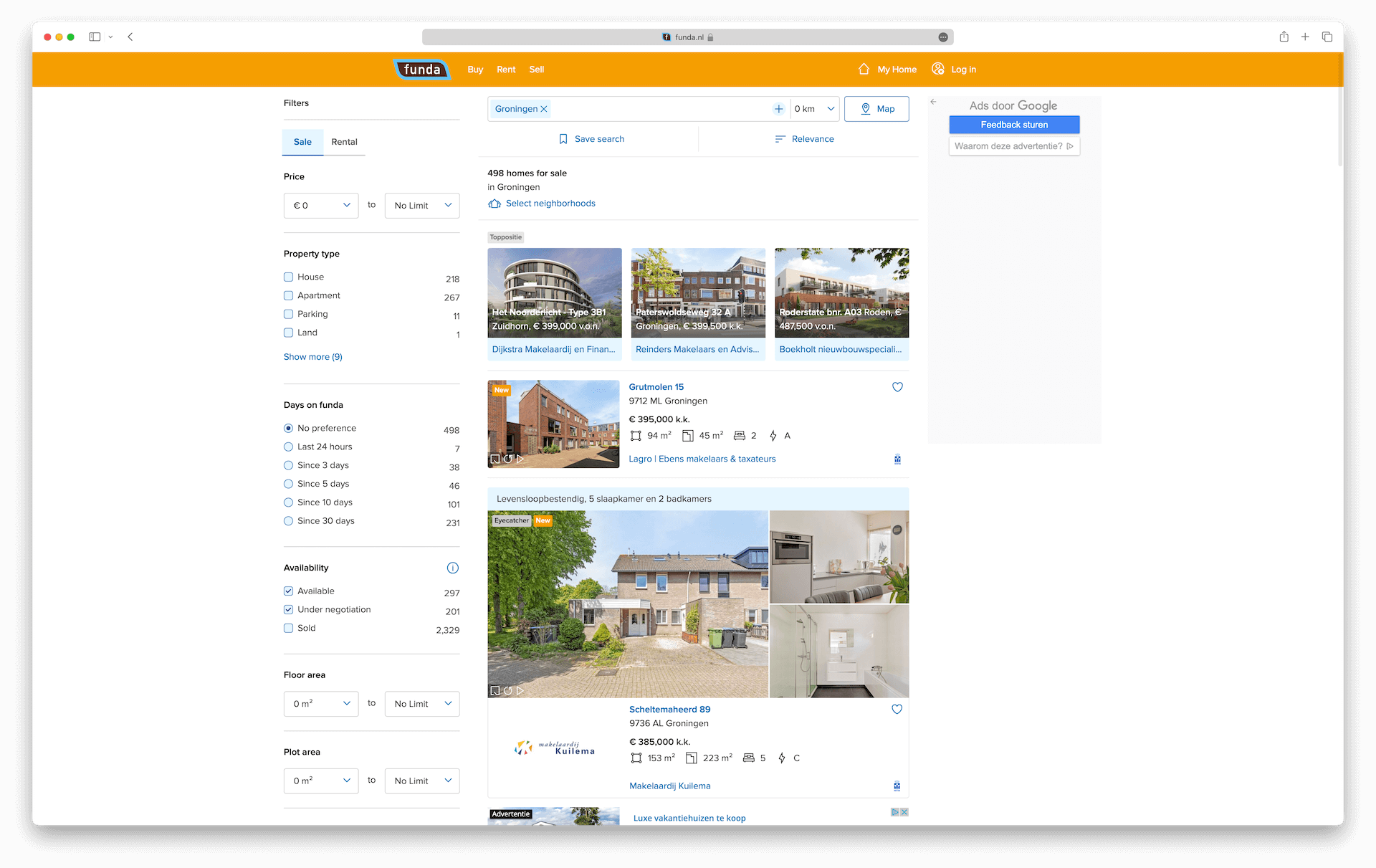
Their mobile application is also very good because it lets you view a map of your location and nearby properties.
Make sure you’re using Funda's filters using your wishlist. They are pretty advanced, so you can easily set everything you want and save it. For saved filters, you can also set up a newsletter with the properties appearing daily so you won’t miss them. Or you can browse it yourself every day.
Applying for viewings
Applying for a viewing is usually pretty straightforward and instructed in the listing. You can either use the "Plan a viewing” button on Funda or contact the agent directly, again, either via the website form or by calling them.
In a big competition cities, I always recommend calling. Don’t worry, 99% of real estate agents speak English so you won’t be forced to speak your bad Dutch with them.
After the application, they can ask for the documents right away or maybe signup on a specific website. Sometimes they ask for documents after the viewings taken place.
Another tip is never to be late for viewings. It’s considered rude in the Netherlands to be late, and most viewings have a very tight schedule. They allocate each 15 minutes for a new potential tenant, so you might miss your slot.
Rental Costs
It’s really hard to share the rental price you may expect here. It varies widely based on cities/areas/apartment sizes/amenities, etc. You should start using Funda right away and see the prices yourself.
Personal Experience
In The Hague, a 72m² apartment in a nice and quiet area near the beach line, we rented for €1670 per month in 2022 (including the service costs of the building).
This semi-furnished, very good-condition apartment was in a newly renovated building. However, it was far from the city center of Hague, which is around 25 minutes by bike or tram.
But when we left in 2023, the price increased to ~€1800 per month for the same apartment. And the place was already rented out in a week after it was published on Funda.
I don’t want to scare you, but the Dutch housing market crisis is real. The lack of housing supply and many expats drive prices up, especially in the Randstad area and other major cities.
Don’t forget to budget for the additional costs as well. Plus, if you want to buy furniture in your apartment, it also requires some additional budgeting.
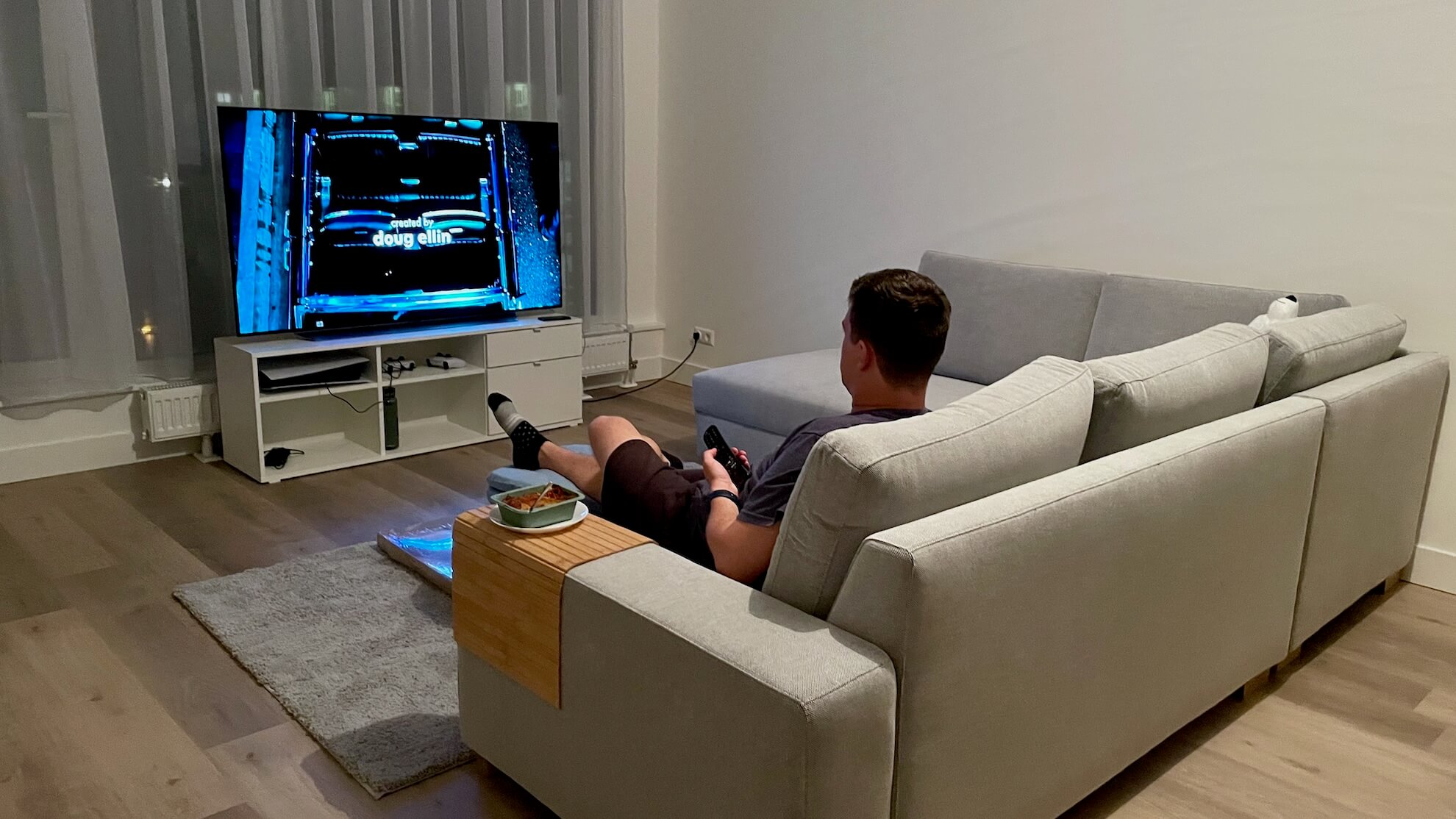
Additional costs for rental
Keep in mind that for people who have just arrived in the country and don’t have any tax history here, the owners can ask for a 2- 3 month deposit in advance, in addition to the first month's rent. The deposit will be returned only after you leave the apartment, so make sure you have additional savings for that.
Also, remember to budget for additional expenses such as energy bills, Internet, and possible building service costs (like maintenance or cleaning). My cost of living guide covers this and a bit more about rental prices.
After creating your perfect list, be ready to give something up. It’s very hard to find a perfect place, especially with the current housing crisis in the country, unless you’re willing to spend a lot of money on rent, of course.
Affordable and Social Housing
You might want to check affordable and social housing programs if you have a lower income.
Social housing is a program for people with lower incomes. In 2024, the requirement is to have an income of less than €47,699 for one person and €52,671 for a family. In that case, you can apply for special rental places. Social housing is apartments that cost €879.66 or less.
It's a great benefit, but as I heard, the waiting time for approval is quite long. However, it's worth the research if you fit into the category.
Another category that only exists in some municipalities is affordable housing. It's a middle step between social housing and the regular free market. You need to research a bit more on the municipality website, but I can tell you this program exists in The Hague (Read more on denhaag.nl).
The Hague requires an income of less than €62,191 for a single person or €82,921 for a family in 2024. This permit is much easier to get, at least in The Hague, and you can start looking for apartments right after applying for it.
This opens up much more affordable apartments. The prices of the apartments are usually lower than €1116.85 in 2024. However, sometimes, they could be higher because it applies to selected houses based on a specific score system, but they are more affordable. So, if you see an apartment for €1200 but still marked as a housing permit, don't be surprised.
If you are not eligible for affordable housing, it’s good to know about this, too. Some listings on Funda may have a note “Permit required.” That is exactly about this program. You may skip those listings because you won’t be able to rent them with a higher salary.
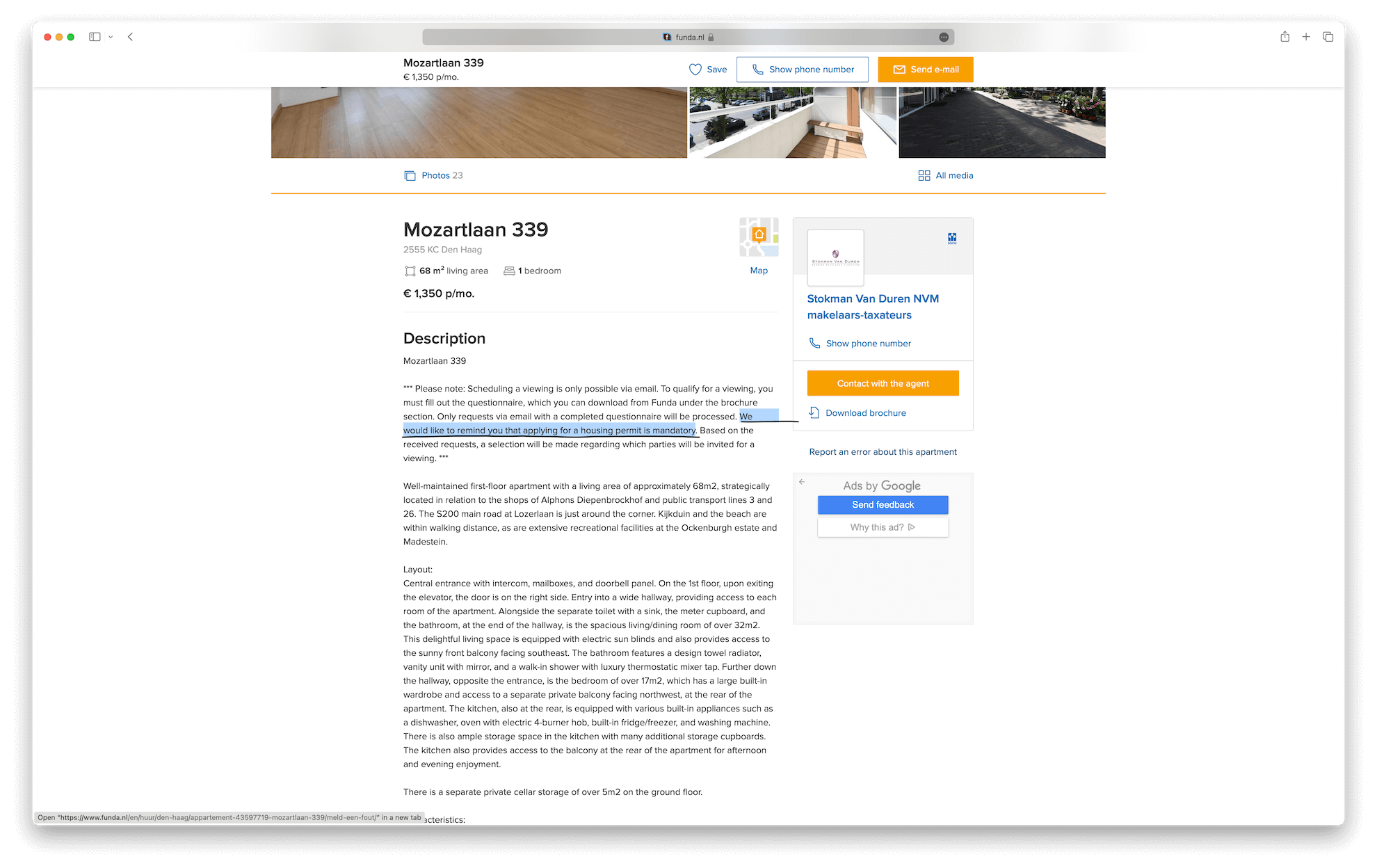
Application Process and Documentation
After viewing potential apartments, be ready to apply promptly. Follow the real estate agent's instructions and provide all requested documents promptly.
Typical documents include:
- ID or passport
- Work contract and employer statement
- Salary slips and bank statements
- BRP extract (Municipal Personal Records Database)
- Previous tenant statements
Additional documents like a balance sheet and tax returns might be required for self-employed individuals.
Tenant Laws and First-Time Renters
Tenant laws in the Netherlands are stringent, leading to comprehensive document requests. As a first-time expat, you may face additional challenges due to the lack of established tax and salary history.
Persistence Pays Off
Continue your search even after applying for a place. Persistence increases your chances of securing your desired apartment.
Reviewing and Signing the Contract
Thoroughly read and understand your rental contract, which should outline terms, payments, apartment contents, and maintenance responsibilities. Contracts may be provided in both Dutch and English.
If you have any doubts, I would recommend not signing up for an apartment or consulting with your company or at least a Dutch person you know. It’s better to spend a bit more time on a search than be part of some scam or face some issues in the future.
Final thoughts
After moving in, you must register with the municipality and establish utility contracts. These steps are essential for a smooth transition into your new home. I’ll cover these steps in a future article and video.
Navigating the Dutch rental market can be challenging, but with the right knowledge and persistence, you’ll find a place to call home. I hope this guide has been instrumental in your apartment search.
If you’re considering transitioning from renting to buying a home in the Netherlands, my book "Guide to Buying a House in the Netherlands" is the ultimate guide you need. It provides detailed insights, practical tips, and exclusive resources to help you make informed decisions and navigate the buying process with confidence. Don’t let the complexities of the Dutch housing market hold you back. Get your copy today and start your journey towards owning your dream home in the Netherlands!
You might follow me on YouTube for more content.
Happy apartment hunting!